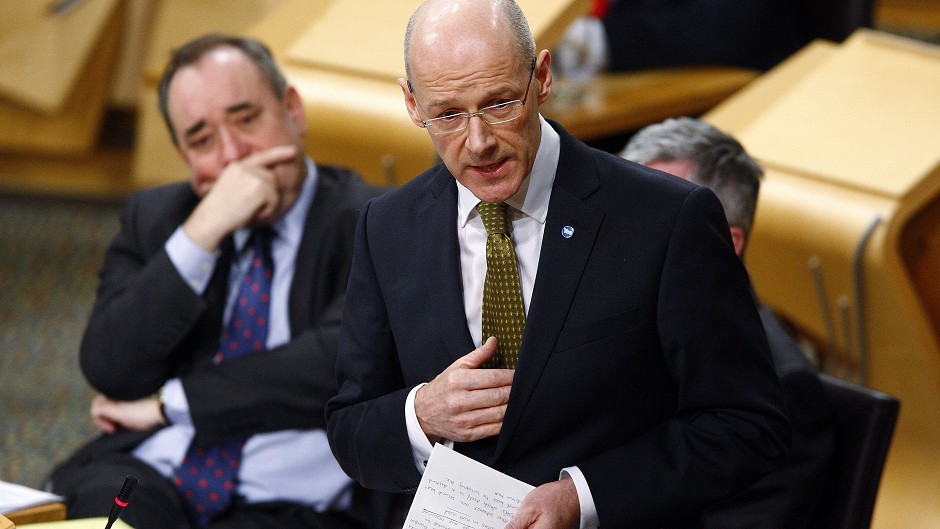Finance Secretary John Swinney has claimed proposed new tax rates are set to benefit first-time buyers and those at the lower end of the housing market.
He said the Land and Buildings Transaction Tax (LBTT) – which will replace UK Stamp Duty Land Tax from April 2015 – would change the way people pay tax on property purchases.
The proposal is contained within the Scottish Government’s draft budget for 2015-16 unveiled at Holyrood by the finance secretary this afternoon.
The new rates, the first to be introduced in Scotland in 307-years, will only be payable on the portion of the total value which falls within each band.
This contrasts with the ‘slab’ structure of stamp duty under which the higher tax rate is payable on the whole purchase price when a threshold is crossed.
The rates will take 5,000 additional house purchases out of tax by ensuring that nobody will pay tax on the first £135,000 of their house purchase – £10,000 higher than the current stamp duty threshold.
They will ensure that no tax will be payable on 45% per cent of transactions, reduce the tax charge relative to stamp duty for a further 44,000 house purchases up to £325,000 and ensure that 90% of homebuyers will either pay less or the same amount as they would under current arrangements.
The two devolved taxes will be collected by Revenue Scotland and are expected to bring in an estimated £558million in 2015-16.
Scotland’s block grant will be adjusted to recognise that these tax receipts will flow directly to Holyrood and not to the Treasury in London.
Mr Swinney said: “The old stamp duty was outdated, causing unfair tax hikes, and this led to the market being distorted and led people to try to avoid tax.
“Our proposed residential transaction rates will be more proportionate to the house price, and means that the tax is fairer as it is based more closely on the buyer’s ability to pay.
“The increase in the level before paying tax will also benefit around 5,000 homebuyers a year – helping first time buyers and improving the affordability of starter homes.
“This new approach will benefit the majority of Scots, 90% of homebuyers will either pay less or the same amount as they would under current arrangements.”
Mr Swinney said a couple buying their first home for £140,000 will pay £100 under the new system which is £1,300 less than the stamp duty charge which applies now.
“A family buying a new home for £260,000 will pay £3,300 under the new transaction tax – that’s a saving of £4,500 compared to stamp duty,” he added.
Mr Swinney said the draft budget was aimed at tackling inequality and deliver a more prosperous and fair society.
The government wants to invest £390million to deliver 6000 affordable homes and provide £125million in additional financial support for the housing sector.
Free prescriptions, concessionary travel and free personal care will continue and £79million will be spent on supporting improvements in domestic energy efficiency.
The government will provide free school meals for all P1 to P3 children worth around £330 for each child, invest £81million to mitigate the impact of UK Government’s welfare reforms and the council tax will continue.
